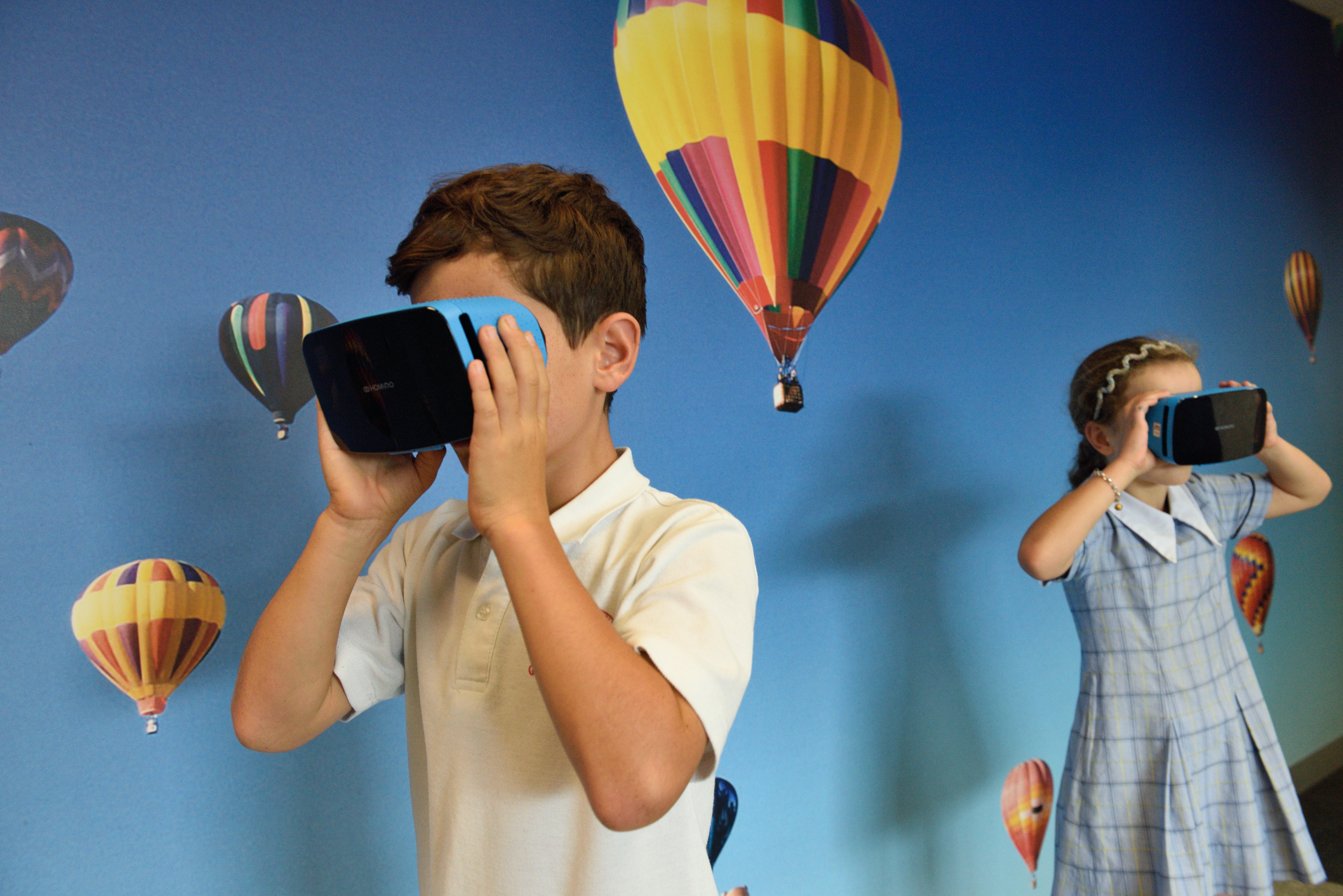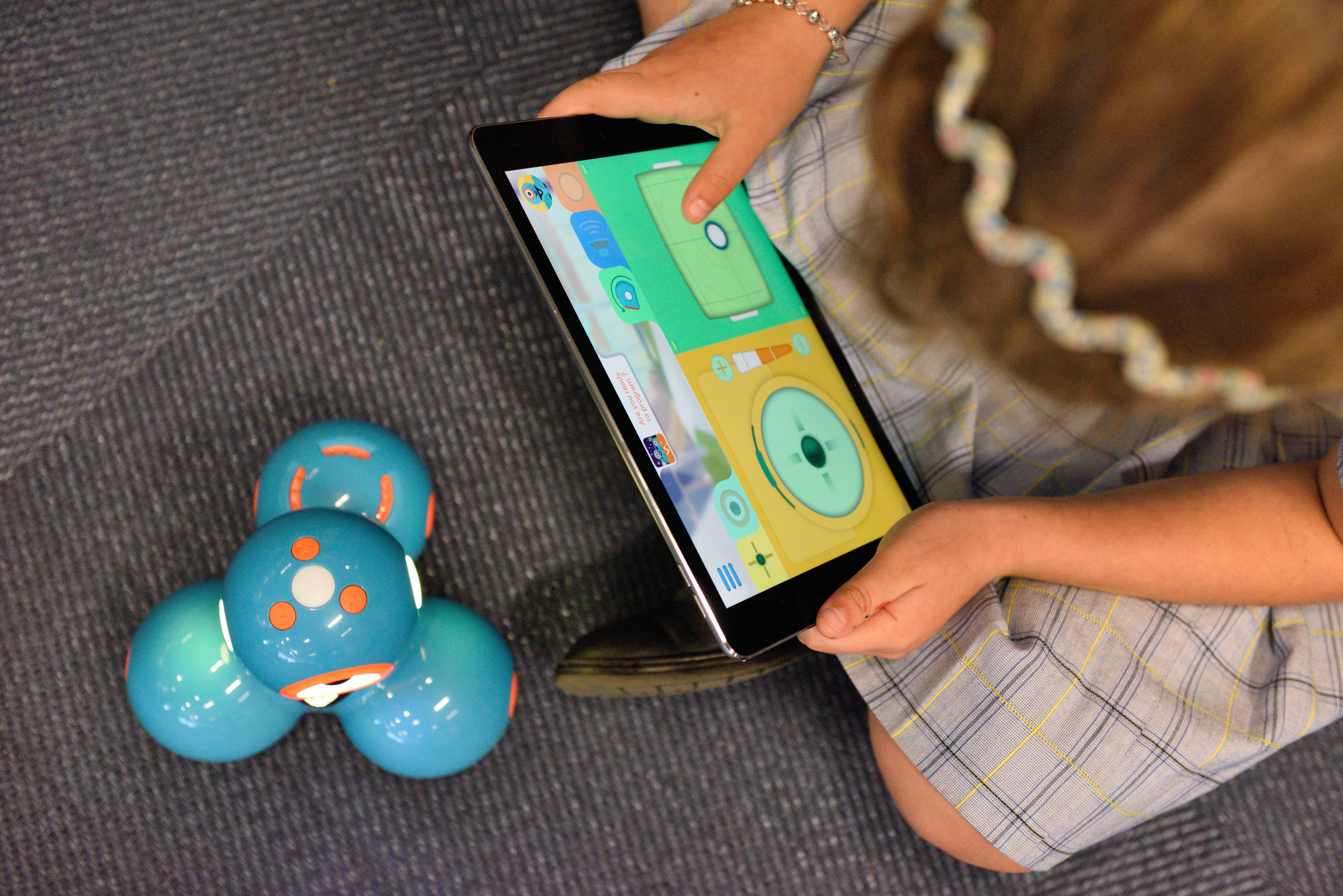A Vision for the Future of Virtual Reality in Education
Virtual Reality (VR) is slowly taking over our entertainment industry. But what are the implications for other areas of our lives, such as business, health, and even…education?
While the educational realm generally takes longer than anyone else to embrace new technology, VR brings many implications for the schools of tomorrow.
Here are some ways in which VR might change the face of education in the future.
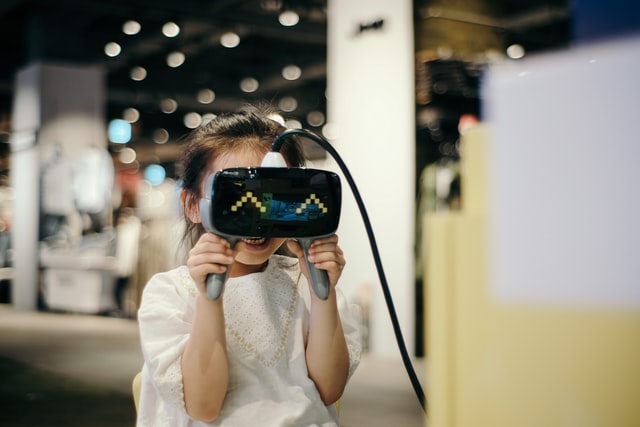 Photo by insung yoon on Unsplash
Photo by insung yoon on Unsplash
- 0 Comments
- Jul 13, 2020 10:00:00 AM
- Posted by Natalia Galvis
- Topics: EdTech, STEM, Coding, students, Technology, VR, Realidad Virtual, Réalité virtuelle, online
10 Roles For Artificial Intelligence In Education
For decades, science fiction authors, futurists, and movie makers alike have been predicting the amazing (and sometimes catastrophic) changes that will arise with the advent of widespread artificial intelligence.
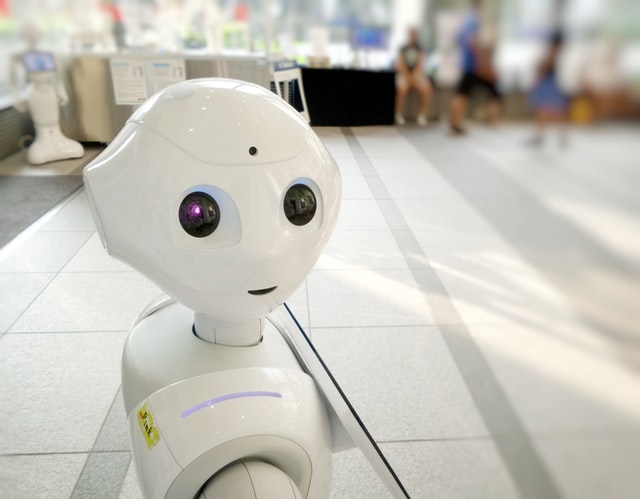 Photo by Franck V. on Unsplash
Photo by Franck V. on Unsplash
So far, AI hasn’t made any such crazy waves, and in many ways has quietly become ubiquitous in numerous aspects of our daily lives. From the intelligent sensors that help us take perfect pictures, to the automatic parking features in cars, to the sometimes frustrating personal assistants in smartphones, artificial intelligence of one kind of another is all around us, all the time.
- 0 Comments
- Jul 10, 2020 10:00:00 AM
- Posted by Natalia Galvis
- Topics: STEM, Artificial Intelligence, Coding, students, Technology, Edchat, AI, online
Do Your Classes Include Technology Integration?
Whether you include it in your instruction or not, the students in your classes are using technology. Unfortunately, their access is not always school-related.
You can change that if you’re willing to require that students use technology as part of their learning experience. The first step to authentic technology integration in any classroom lies in differentiating how students use technology. Would you rather that your students be entertained or be accountable?
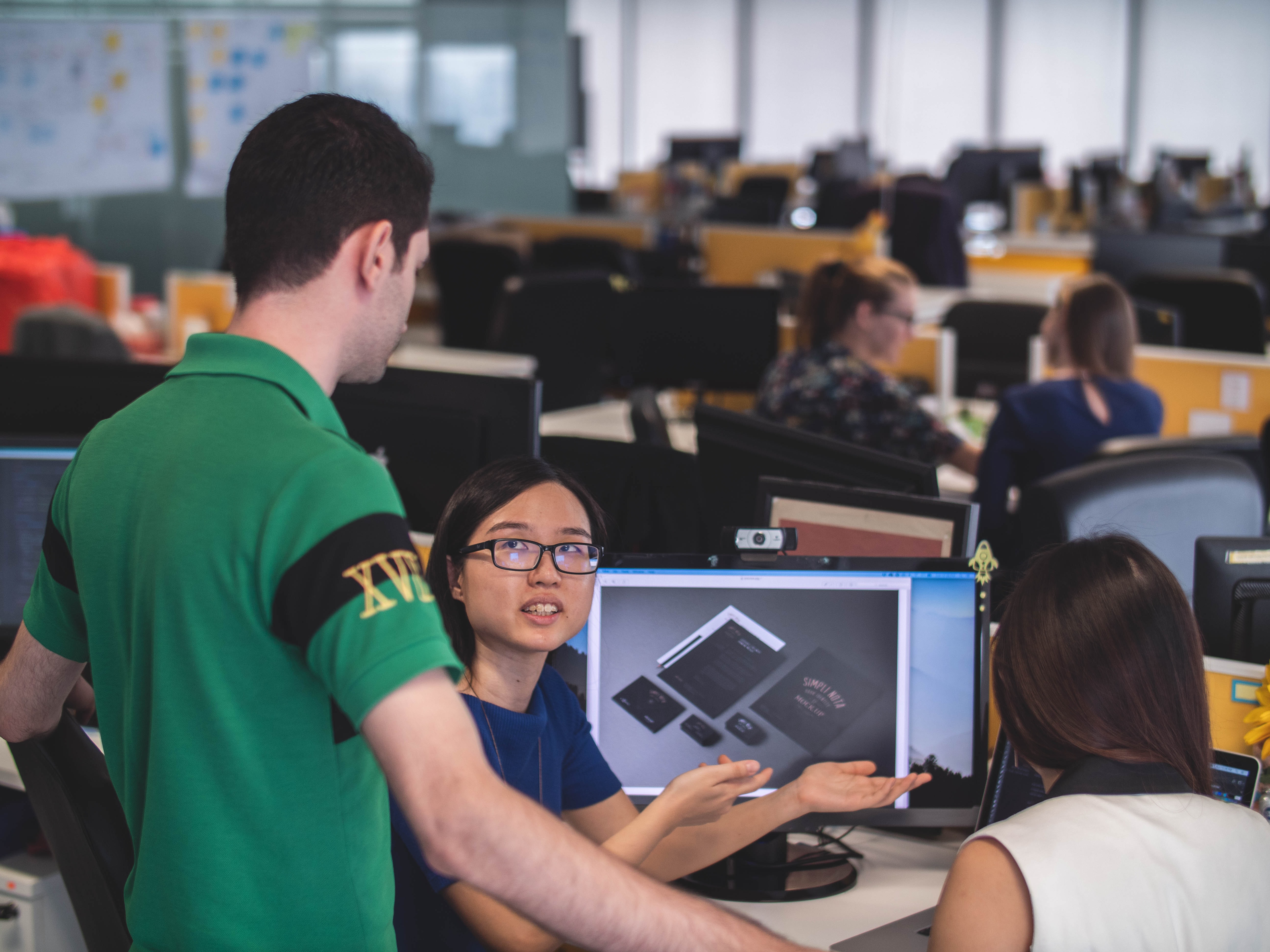 Photo by Mimi Thian on Unsplash
Photo by Mimi Thian on Unsplash
- 0 Comments
- Jul 9, 2020 10:00:00 AM
- Posted by Natalia Galvis
- Topics: STEM, Coding, students, Technology, Edchat, online, distance learning
VR Opens Doors to Virtual Classrooms for Students During COVID-19
Imagine if your school-age child had the opportunity to build a robot, dissect an animal in a virtual science lab, and bend the laws of physics without leaving home. Virtual reality (VR) continues to open up a world of opportunities for several industries including manufacturing, healthcare, construction, military training, and, of course, gaming.
- 0 Comments
- Jul 8, 2020 10:00:00 AM
- Posted by Natalia Galvis
- Topics: STEM, Coding, students, summer, Edchat, online, virtual learning, distance learning
STEM Activities to Inspire Fun and Creativity During the Summer
Manufacturing Stories highlighted a list of fun ideas to keep kids learning through the summer, focusing on STEM and integrating curiosity, critical thinking, and fun. Check out these activities and more.
- 0 Comments
- Jul 7, 2020 10:00:00 AM
- Posted by Natalia Galvis
- Topics: STEM, Coding, students, summer, Edchat, online, virtual learning, distance learning
4th of July STEM-Related Activities
The 4th of July is one of the best holidays for STEMists! Firstly, it’s a great way to get kids engaged in celebration preparation. Secondly, it’s a chance to do some super groovy STEM activities. From yummy recipes, to watching the night sky light up with fireworks, above all STEMists are bound to show up for America’s big celebration! As a result, we’ve put together 5 STEM-related ways to celebrate and have a fun-filled Fourth of July.
 Photo by Robbie Noble on Unsplash
Photo by Robbie Noble on Unsplash
- 0 Comments
- Jul 3, 2020 10:05:00 AM
- Posted by Natalia Galvis
- Topics: STEM, Coding, students, Edchat, online, virtual learning, distance learning, 4th of July
Only One in Five Schools Offered 'Rigorous' Remote Learning, Study Says
.jpg?width=678&name=remote-learning-IMG%20(1).jpg) Image: iStock/Getty
Image: iStock/Getty
Only 20% of schools offered rigorous, technology-based remote instruction while school buildings were shut down this spring, according to a new report from the American Enterprise Institute, and students in K-12 districts with a majority of high-poverty or low-achieving students were less likely to receive rigorous instruction at a distance.
- 0 Comments
- Jul 2, 2020 10:00:00 AM
- Posted by Natalia Galvis
- Topics: Robotics, EdTech, STEM, Coding, Drones, Robots,, students, programming, Dobot Robotic Arm, STEMchat, Edchat
Teacher Jorg Duitsman Teaches Robotics & Engineering Courses With Dobot Magician in The Netherlands

In August 2018, Jorg Duitsman started his teaching position in the departments of Mechatronics and International Engineering at Summa College. Jorg is a long-term lover of technology and maker education. Like any other technology teachers, Jorg was eager to find a better way to teach problem solving, critical thinking, and other important 21st century skills in classrooms. That’s when he started searching and found DOBOT. Later on, he purchased 20 Dobot magicians and two Dobot m1 for his school.
- 0 Comments
- Jul 1, 2020 10:00:00 AM
- Posted by Natalia Galvis
- Topics: Robotics, EdTech, STEM, Coding, Drones, Robots,, students, programming, Dobot Robotic Arm, STEMchat, Edchat
Creating an Inclusive Virtual Classroom
Distance learning can feel impersonal and inaccessible, but there are ways to help students feel a sense of connection and access academic material.
 Kanawa_Studio / iStock
Kanawa_Studio / iStock
- 0 Comments
- Jun 30, 2020 10:00:00 AM
- Posted by Natalia Galvis
- Topics: STEM, Coding, students, Edchat, online, virtual learning, distance learning
Why Schools Must Build A Virtualized Ecosystem
Keeping your school’s infrastructure up to date is about more than investing in powerful computers: now that the global health crisis has forced schools to rely more and more on technology in order to implement first distance learning and then blended learning, teachers and students in many countries are being faced with the flaws in their ecosystems.
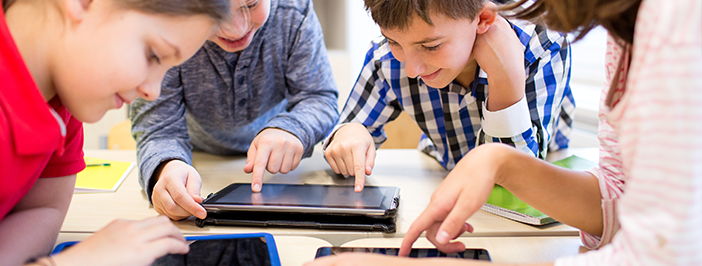
Not all schools were prepared for this sudden transition, and many have learnt by experience that even equipping the campus with the latest devices is not enough to claim that your institution can boast state-of-the-art educational technology—what if the campus itself becomes inaccessible?
- 0 Comments
- Jun 29, 2020 10:00:00 AM
- Posted by Natalia Galvis
- Topics: STEM, Coding, students, Edchat, online, virtual learning, distance learning
Relevant Posts
Popular Posts
Subscribe to Email Updates
-
I Want To Learn MoreADDITIONAL INFORMATION


